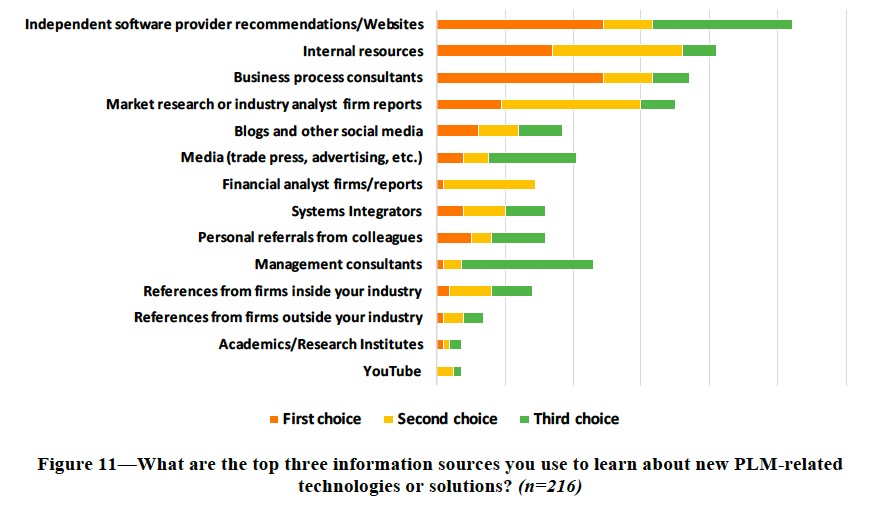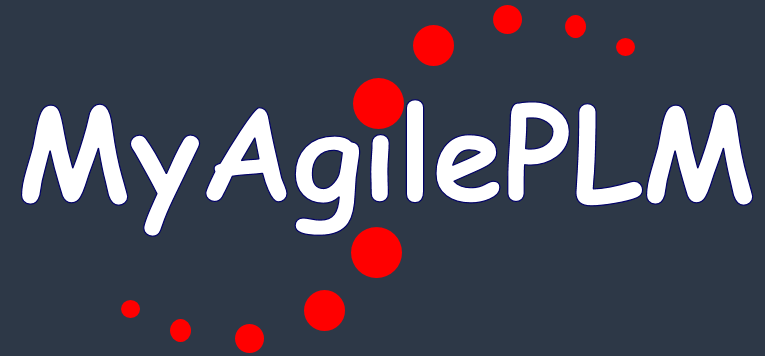
How do you answer on the question what PLM product and technology is better? Dassault vs Siemens? PTC vs Aras? Should we buy from a single vendor or multiple vendors? How to get rid of 20 years old PLM implementation company is relying on without disrupting existing production process? These are hard questions to answer…
Few years ago, before starting OpenBOM, I’ve been consulting manufacturing companies. Most of companies came with a very specific questions about how to compare PLM technologies, products and vendors. They asked me what PLM vendors and products can be the best fit to their product development processes and business strategies. Those can be tricky questions to answer. In most of these situations, the answer wasn’t so obvious. The answer requires some learning and research about what customers do, but also to apply knowledge about vendors and products.
Earlier this week I wrote about PLM ranking. In the past, research companies like Gartner and some others produced PLM vendor ranking. One of the most famous is Gartner Magic Quadrant. I think, comparison is very important things. Companies like Gartner, Forrester and others are producing lot of researches and can gather market information and lot of valuable data points.
However, in PLM space, ranking wasn’t doing very well recently. The latest Forrester Wave comparison created lot of debates online. One of the latest Gartner MQ I remember remember put all top vendors as visionary and leaders and left all other 3 quadrants practically empty. To me it means we need to go beyond traditional feature based PLM comparison. Generic PLM ranking is dead. It is useless. High level comparison between top PLM vendors is useless too. In a current state of PLM industry, we have top 5-7 vendors. There are no big functional difference between their portfolios on the high functional level. All these vendors already implemented or acquired solutions the demanded by manufacturing companies. You will find commonly agreed design, data management, bill of materials, change management, process automation, simulations and many other functions. As it was rightfully stated by Joe Barkai in his Ranking PLM vendors article, PLM buyers buy more than software; they buy a shared vision, a clear product roadmap, domain expertise, and a long-term commitment to those.
With no obvious way to decide who is the best vendors, companies are hiring consultants to help them to form a decision. And it requires multi-dimensional knowledge and industry information. In the past top consulting firms served as a single shop consulting solutions for vendors. But, it is going to change. Consulting industry will be going through significant transformation in a near future. The key reason – knowledge democratization and disaggregation of consulting functions. HBR article Consulting on the Cusp of Disruption speaks about specialization of consulting businesses.
Their growing sophistication leads clients to disaggregate consulting services, reducing their reliance on solution-shop providers. They become savvy about assessing the jobs they need done and funnel work to the firms most appropriate for those jobs. We spoke to top managers of Fortune 500 and FTSE 100 companies who were once consultants themselves; they repeatedly described weighing a variety of factors in deciding whether the expensive services of a prestigious firm made sense. As one CEO (and former Big Three consultant) put it, “I may not know the answer to my problem, but I usually roughly know the 20 or so analyses that need to be done. When I’m less confident about the question and the work needed, I’m more tempted to use a big brand.”
This disaggregation is also explained by a theory—one that describes the increased modularization of an industry as client needs evolve. As the theory would predict, we are seeing the beginnings of a shift in consulting’s competitive dynamic from the primacy of integrated solution shops, which are designed to conduct all aspects of the client engagement, to modular providers, which specialize in supplying one specific link in the value chain. The shift is generally triggered when customers realize that they are paying too much for features they don’t value and that they want greater speed, responsiveness, and control.
Large manufacturing companies usually live in the situation when they already have established set of systems and methods to work (otherwise, I’d question their ability to ship products to customers). These companies are already using software from major CAD and PLM vendors combined with significant amount of homegrown and customized software. Some of these systems are redundant and some of them are aging or out of support.
Generic PLM ranking is useless in such situation. You cannot get an answer about what system to use based on functional comparison. You need to figure out what to do, how to lay out data management strategy, improve processes. Only after that you can come with some ideas about what PLM software can do it. Combine it with existing status quo of systems, vendor relationships, add some company politics and influence and you get a typical PLM implementation situation for large manufacturing shop.
Manufacturing companies in such situations are desperate for knowledge. CIO and engineering IT managers are looking for information to backup their decisions. How to bring this knowledge to them is a good question?
Published surveys can help, especially if they are granular enough and might have matching questions to specific problems companies are experiencing. These days we are moving towards new digital world, companies are more starting to pay more attention to alternative sources of knowledge – websites, technologies, watching videos and trying products available online. Recent cloud PLM research published by CIMdata tells that when companies are thinking about cloud PLM, the first check they do is independent software providers recommendations and websites (not business process consultants).

However, website won’t give to manufacturing companies an ultimate answer. To reduce risk of errors, CIOs and IT managers are looking for consulting – people that can help them to get information about PLM products, technologies and vendors, make an assessment of their decisions and find potential problems, sometimes even to fight company politics.
Does it mean hiring business PLM consulting is the only way to get it right? How companies can get right information that can help them to form an opinion and make right decision? It made me think about democratizing of PLM knowledge, products and experience. What was a top secret information held by top consulting firms in the past, now published on their blogs to bring potential customers. Products that before required expensive licenses before you can even touch them, today are available for free trials, subscriptions and can be evaluated by teams before making a decision. And finally the experience of going through the decision process is changing as well. It is becoming more granular, open and knowledge oriented. Less magic secrets sauce and big names, more about transparency, informative data points and agile PLM selection experience.
What is my conclusion? We live at the time when knowledge sources are democratized and becoming easy available to everyone. Researches are published online, products and technologies are available for free trials and consulting is getting more granular and transparent. Internet and social networks open new ways to make information transparent and knowledge providers can be hired differently than 10-15 years ago. We are moving from universal PLM vendor ranks to the world of new ranking experience that will be tailored for a specific company based on their current status of process development and tools. Just my thoughts…
Best, Oleg
Want to learn more about PLM? Check out my new PLM Book website.
Disclaimer: I’m co-founder and CEO of OpenBOM developing cloud based bill of materials and inventory management tool for manufacturing companies, hardware startups and supply chain. My opinion can be unintentionally biased.
The post How to democratize PLM knowledge and disrupt traditional consulting experience appeared first on Beyond PLM (Product Lifecycle Management) Blog.



Be the first to post a comment.